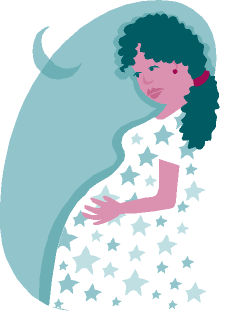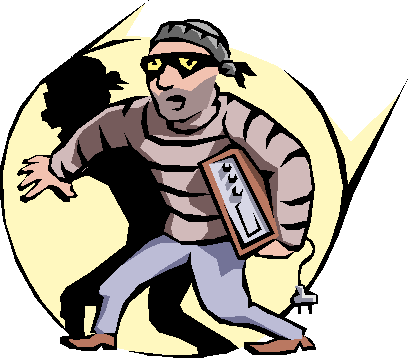Part 5: The Case Against Drug Use
Employing paternalism (from Aristotle or Dworkin) we find three relevant arguments providing a moral reason for the state to criminalize drug use.
1. Drug use can kill you.
This means that a liberty to use drugs is equivalent to a liberty to kill yourself. If the state can restrict suicide then so also can it criminalize using drugs.
2. Even if drug use doesn't kill you it is clearly bad for you.
Using these drugs causes health problems for you directly, or, drug use can lead you do to other dangerous things while high that may harm you. Being high on drugs also places you at risk to be victimized by other people without the ability to resist. For instance, many people are sexually assaulted while high and may be unaware or unable to resist such an assault.
3. Even if your use of drugs does not cause you harm or death, we can still say on strong paternalistic grounds that you are better off not using drugs.
This not only means that you are better off avoiding the risks of harm, but that you are in some ways a better person, or more likely to benefit from not using drugs.
All three of these arguments are based upon paternalism . Of course if we reject paternalism, then we will reject all three of these arguments. This rejection of paternalism would not end the debate as even if we adopt a view of liberty like Mill's Harm Principle; there is still the question: " Does allowing a person to use drugs constitute a harm to others? "
Many will argue that drug use does constitute a harm to others such that even on a harm principle account of liberty, drug use is not strictly self-regarding and therefore state criminalization is permissible. The next nine arguments against drug use are grounded in the idea that allowing drug use constitutes endorsing harm to others.
4. Allowing people to take drugs leads to an increase in accidents which often harm others.
 People on drugs are not in full control of their faculties. They take risks they would not normally take and do things they would not normally do. Imagine: What if the person driving your child's school bus was high? Any drug which affects a person's coordination or mental capacity negatively will result in an increase in accidents, which will harm innocent people. Mill is a utilitarian. It seems a simple claim that the costs in terms of accidents outweighs any pleasurable benefit from drugs.
People on drugs are not in full control of their faculties. They take risks they would not normally take and do things they would not normally do. Imagine: What if the person driving your child's school bus was high? Any drug which affects a person's coordination or mental capacity negatively will result in an increase in accidents, which will harm innocent people. Mill is a utilitarian. It seems a simple claim that the costs in terms of accidents outweighs any pleasurable benefit from drugs.
5. Allowing people to take drugs leads to an increase in violence and abuse of family members.
It is clear that many of these drugs will make people more prone to violence and less likely to reason. Many drug users "flip out," and often hallucination and paranoia facilitate violence that would not occur but for the use of drugs. Again, on a utilitarian account, the costs of violence and abuse outweigh the benefits of drug use.
6. Allowing people to take drugs leads to decreased productivity on the job, which affects the economy.
This is a straightforward utilitarian account under which the loss to productivity outweighs the benefits of drug use. Two historical examples of this are the impact of millions of opium addicts upon the Chinese economy, and the effect drug use had in lessening the fighting ability of American troops in Vietnam . During the war many troops were not fit for duty because of their drug use. In addition, people who use drugs often end up losing their jobs, which makes them a burden to the public welfare system. 
7. Allowing people to take drugs will increase the harm caused to fetuses by pregnant drug users.
Perhaps the most widely known term for this is "crack babies," but this goes beyond any one drug. Drug use by pregnant women can cause serious birth defects which not only harm that child but also cost society small fortunes to care for children that are unable to lead normal lives due to their parents' drug use.
8. Allowing people to take drugs leads to an increase in crime generally.
 Drug use supports a system of drug production and sales that leads to gang wars, drug murders, political assassinations (there have been several in drug producing countries), and even robberies, thefts, and assaults by drug users attempting to earn more money to buy drugs.
Drug use supports a system of drug production and sales that leads to gang wars, drug murders, political assassinations (there have been several in drug producing countries), and even robberies, thefts, and assaults by drug users attempting to earn more money to buy drugs.
9. Allowing people to take drugs facilitates the spread of diseases like AIDS.
People who use drugs often share needles, which spreads diseases. In addition, other drugs encourage people to engage in sex (sometimes unknowingly) which also spreads disease.
10. Allowing people to take drugs increases poverty.
Drug users spend an enormous amount of money on drugs, often at the expense of their kids' needs. People who spend so much and become unable to support their families or even themselves become a burden on the public welfare system, which constitutes a harm to the taxpayer. Mill himself thought that if people's activities left them unable to live up to their obligations to others (say, caring for children), then that activity was a harm to others.
11. Allowing people to take drugs will get them addicted. Becoming addicted to drugs is an impairment upon future liberty.
Remember, Mill himself said we could not let someone sell themselves into slavery because that too would impair a person's future liberty. If, as Mill says, the purpose of the harm principle is to enhance liberty, then the harm principle should oppose drug use on the grounds that drug addiction limits liberty.
12. Allowing even rational adults to take drugs will ensure that drugs become more available such that children will obtain access to them.
Not only does allowing people to take drugs ensure easier access to drugs by children, but it also sends the wrong message to children that drug use is OK.
